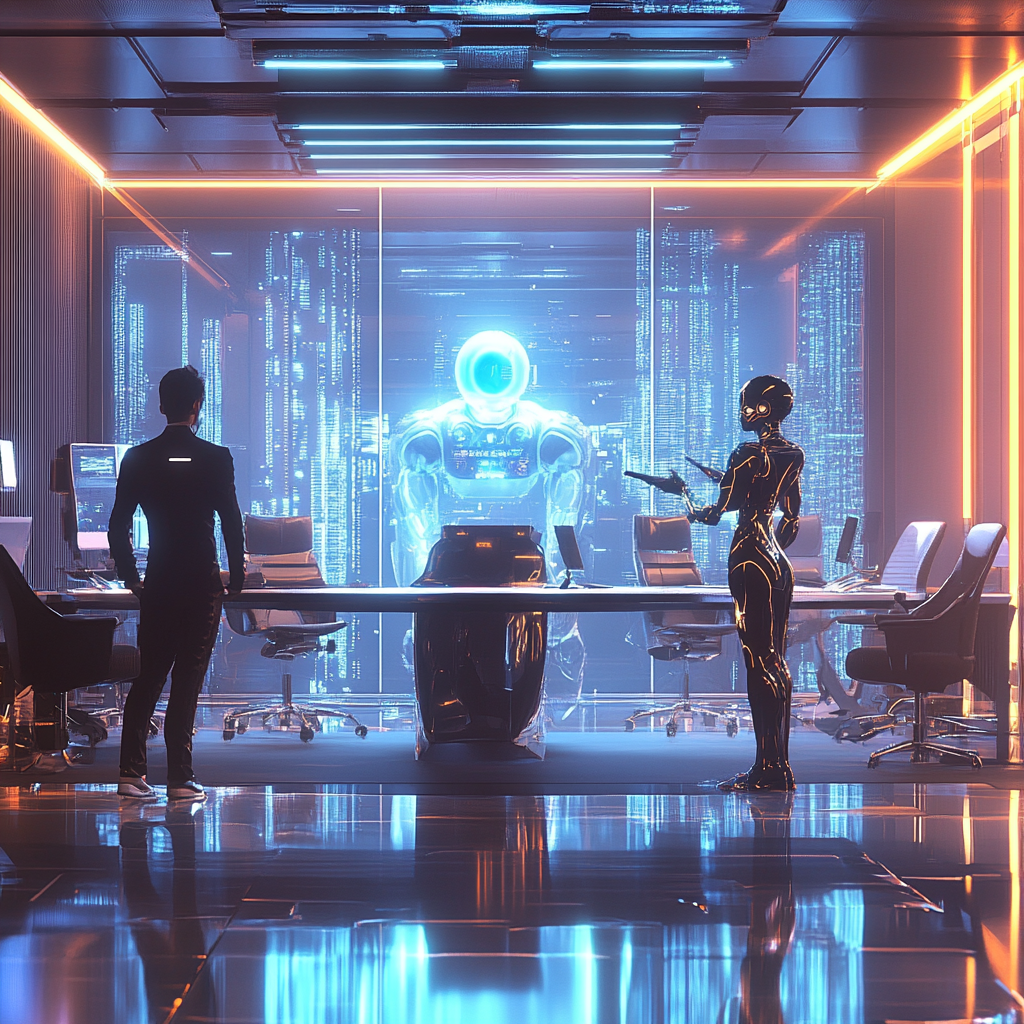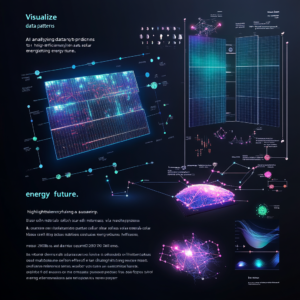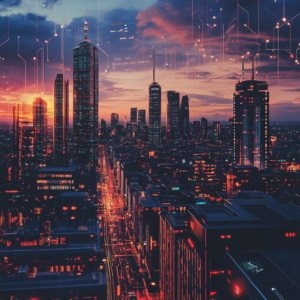
“Embracing AI Agents: Your Future Coworkers”
The Future of Work: Your Next Coworker Might Just Be an AI Agent
Picture this: you walk into your office only to find your next desk neighbor isn’t sipping on a latte, but instead whirring away at tasks more efficiently than anyone you know. Welcome to the world of AI agents—your potential new coworkers who might just change the very fabric of the workplace. Yes, the future isn’t only about robots making your coffee; it’s an era where digital entities hold job roles that were once exclusively human. Buckle up, because this digital revolution is picking up speed faster than you can say “machine learning.”
The Dawn of Digital Coworkers
Let’s start with some big names leading this charge towards AI companionship. Salesforce’s Agentforce is a prime example, featuring bots that perform roles ranging from sales representatives to customer service heroes. Meanwhile, Sierra—a brainchild of ex-Google and Salesforce minds—has pocketed a staggering $175 million to create AI agents that handle intricate tasks with ease [1]. But don’t be fooled; these bots are not just pixels on a screen; they’re evolving into capable team players.
Why Are We Seeing This Shift Now?
- Exponential Growth of AI Technology: The rate at which AI capabilities are doubling is faster than even the most optimistic tech predictions. We’re talking about advancements that put traditional development timelines to shame[3].
- Specialization and Multimodality: Gone are the days of one-size-fits-all AI. Today’s models like GPT are aces at reasoning, while others shine in processing images, audio, and video simultaneously[3].
- Accessibility for All: Tools like “Agent Builder” allow anyone—from tech wizards to marketing newbies—to craft bespoke AI agents, streamlining workflows without the need for programming skills[3].
Welcome to the Hybrid Team Era
Let’s set the record straight: AI agents aren’t here to steal our jobs but to enhance our capabilities. Imagine a world where monotonous tasks—like data entry or customer inquiries—are handled by AI, leaving you with more time for strategy and creative brainstorming. As Dharmesh Shah from HubSpot aptly puts it, “People using AI will replace people not using AI.” If you’re still clinging to the fear of losing your job to a bot, it’s time to wake up and smell the automation. This is about gaining a competitive advantage, not about a robotic apocalypse [3].
Take a cue from a strategy-driven retail giant that partnered with PwC to integrate AI into its software development processes. The outcome? A whopping 60% reduction in cycle times and half the errors. Thanks to these digital coworkers, human developers are now freed up to tackle the company’s biggest projects without drowning in a sea of mundane tasks [5].
But Wait, There’s More: Challenges Ahead
- The ‘Intern’ Management Dilemma: These AI agents can act like well-meaning interns—smart yet prone to blunders. Miscalculations and misunderstandings can lead to bumps along the road, making the management of AI feel more like babysitting than teamwork [1].
- Risk of Social Skills Deterioration: While AI agents boost productivity, over-reliance on them might result in people forgetting how to interact with fellow humans. Just imagine when we can’t even read a room anymore [1].
- Job Displacement Anxiety: Sure, the idea of AI taking over jobs can sound ominous. However, history tells us that technology typically reshapes labor markets, creating new roles while causing old ones to wane [1].
Rethinking Ethics and Company Structures
As AI agents become commonplace, organizations must undergo a significant cultural shift. PwC stresses the concept of “augmented intelligence,” where AI and humans work hand in hand. For companies to thrive in this new landscape, they’ll need to establish:
- Defined Roles: Clear guidelines on when humans should step in to oversee AI decisions will be crucial. Think of it as “AI with human oversight” [5].
- Reskilling Opportunities: Employees will need to be trained not only to work alongside AI but also to embrace a culture of continuous learning, adapting to the evolving tech landscape [5].
- Transparency in Processes: Building trust through open communication and monitoring is vital for long-term success [5].
Let’s Clear Up a Common Misconception
You’ll hear it tossed around in casual conversation or even find it misrepresented in quizzes: the idea that smart speakers embody Artificial General Intelligence (AGI). Not even close! AGI refers to having human-like cognitive abilities across all types of tasks—not just playing your favorite tunes or answering trivia questions like today’s overhyped home assistants [2]. Current AI agents are far from achieving that level of consciousness; they are powerful tools but definitely not sentient beings.
The Road Ahead: Embracing Change
The narrative is clear: AI agents are already in the mix, shaping work across various sectors. The workplace of tomorrow is not just about human potential—it’s a partnership of human ingenuity and AI efficiency that can catapult us into a realm of unparalleled innovation. Salesforce’s own CEO, Marc Benioff, predicts that today’s bosses will likely be the last to manage a workforce composed wholly of human beings [1].
It’s not all smooth sailing, though. Companies will need to balance the convenience of automation against the importance of human oversight, confront ethical dilemmas, and cultivate an environment that views AI as a collaborative partner, not a rival. The real question isn’t whether AI agents will be part of your future workplace—it’s about how you, as an individual or organization, will intertwine these entities into the very core of what you do.
Want to stay up to date with the latest news on neural networks and automation? Subscribe to our Telegram channel: @ethicadvizor

